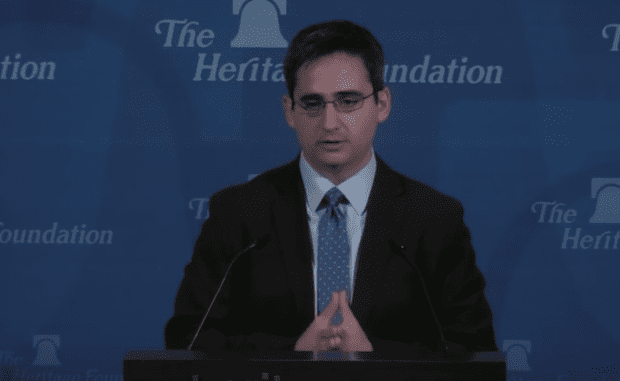Oren Cass On Work, Economy, Morality

Here’s a great interview sociologist Brad Wilcox did with Oren Cass, about his new book The Once And Future Worker. Excerpts:
W. Bradford Wilcox: What is your take on Tucker’s argument about the economy and the working class, and how does your book speak to this debate?
Oren Cass: I agree with a lot of the points Tucker made. We’ve built an economy and a society that just isn’t very conducive to stable families, especially for people with less education who are likely to struggle in the modern labor market. What frustrates me about the response is that they seem to view the debate as either/or. Either the challenges facing the working class can be explained by failure to take personal responsibility or they are the result of policy choices and economic factors. Thus, talking about economics gets interpreted as renouncing the importance of personal responsibility.
But there’s no reason we have to choose between those explanations; to the contrary, the explanations are complementary. Obviously, a lot of people are making bad choices. And we have plenty of examples of people facing similar circumstances who make better choices, which goes to show that personal agency plays a critical role. But I think that the set of choices available to a lot of people has gotten worse and that we’ve made it harder to make good choices. Observing that doesn’t absolve people of responsibility. That said, neither does observing that people need to take responsibility absolve policymakers of responsibility for considering how policies affect people and whether different policies could yield better outcomes.
And note the asymmetry in this debate. Only one side is demanding that we choose one explanation at the exclusion of the other. Folks like me and Tucker, who argue that policy and economic conditions play a role, are not saying that personal responsibility is unimportant or that structural forces have deprived people of all opportunity. We’re just arguing that alongside the traditional conservative emphasis on personal responsibility, we need also to acknowledge that the economic formula of recent decades has not been a good one for a lot of people and that we should hold do better on that front, too. Conservatives need to be able to hold both ideas at the same time.
More:
Wilcox: How and why have changes in contemporary work affected working-class families?
Cass: First and foremost, our economy has become one in which it is much harder for less-educated men to support their families as traditional breadwinners. The Census Bureau reports that in the 1970s, only one-quarter of young men were earning less than $30,000 per year. Now that figure is above 40 percent. Among those without a college degree, the picture is even more dire. Joining the workforce at all becomes less attractive, so we have a much higher share of men who aren’t working full time. And even among those who are, we have many more who can’t achieve the financial security to build a family around.
Men who can’t play the breadwinner role are less attractive as marriage partners, and under those conditions, fewer marriages form. That’s partly for straightforward economic reasons, but also because with declining economic prospects comes higher rates of destructive behaviors like substance abuse. Likewise, unemployment for men is an incredibly strong predictor of divorce.
UPDATE: TAC’s Daniel Kishi reviewed the Cass book here recently. Excerpt:
Contra free marketers, Cass dispenses with the notion that the best labor market is the least-intervened-in labor market. Rather than a naturally occurring state of nature, the labor market must be understood as a garden—it should be tended to, and not trampled upon.
Work, in Cass’s narrative, is important, and the reader quickly concludes that he considers man’s productive capacities to be an anthropological good. The deskilling of the American workforce and the decline in male workforce participation have therefore contributed to a host of downstream consequences for families, communities, and the nation at large. These include, but are not limited to, the multifaceted drug epidemic, lower marriage and birth rates, and a corrosive politics of resentment.
As an alternative to “economic piety,” Cass proposes a framework of “productive pluralism.” Undergirding this vision is what he calls “the working hypothesis,” the principle that a “labor market in which workers can support strong families and communities is the central determinant of long-term prosperity and should be the central focus of public policy.”
To achieve this end, Cass proposes policies that range from orthodox to heterodox to innovative. For a book with an implicit theme of “tradeoffs,” The Once and Future Worker unsurprisingly contains much to like and much to hate, irrespective of the reader’s political priors and preferred policy prescriptions.
Subscribe for as little as $5/mo to start commenting on Rod’s blog.